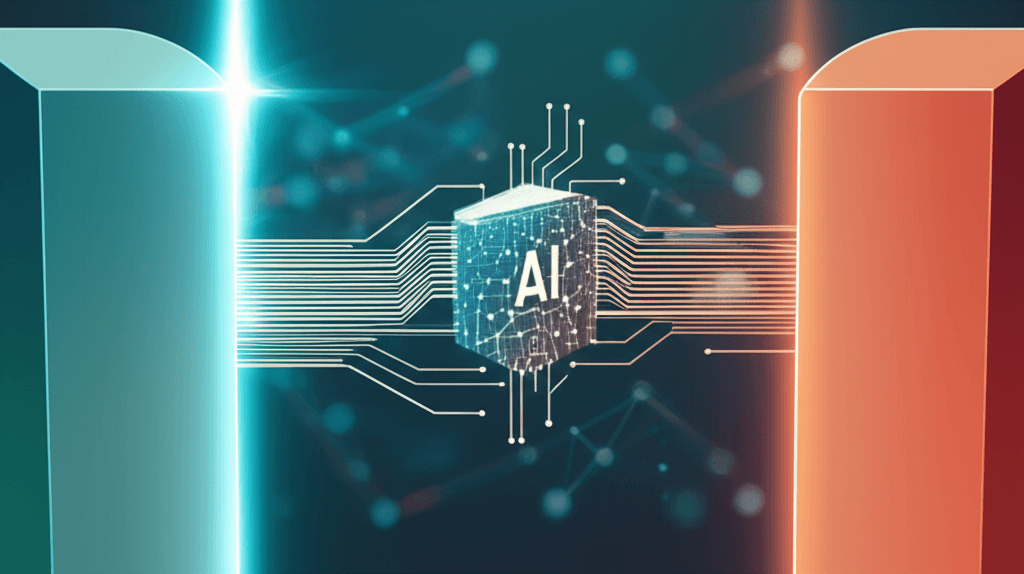Anthropic Blocks Windsurf's Claude Access, Escalating AI Coding Rivalry
Anthropic halts Claude access for Windsurf after OpenAI's acquisition, spotlighting the fierce competition for AI developer tool dominance.
June 6, 2025

A significant strategic maneuver has rippled through the artificial intelligence sector as Anthropic, a prominent AI safety and research company, moved to curtail access to its Claude 3.x models for Windsurf, an AI-powered coding platform. This decision followed closely on the heels of emerging reports detailing OpenAI's intention to acquire Windsurf for a substantial sum, reportedly around $3 billion, signaling an intensification of competition and strategic positioning among leading AI developers. The move has immediate consequences for Windsurf and its user base, while also highlighting broader trends and tensions within the rapidly evolving AI landscape, particularly in the burgeoning market for AI-assisted software development tools.
The catalyst for Anthropic's action is the widely reported, though not yet officially finalized, acquisition of Windsurf by OpenAI.[1] This deal, valued at approximately $3 billion, would represent OpenAI's largest acquisition to date and underscores its ambition to expand significantly into the developer tool space.[2][3] Windsurf, formerly known as Codeium, has gained traction as an AI-native integrated development environment (IDE) designed to assist developers by automating and augmenting coding tasks.[2][3][4] Its platform is known for advanced features such as its Cascade agent, which can understand complex projects, edit multiple files, and even debug code, moving beyond simple code completion to offer more agentic AI capabilities.[5][6][7] For OpenAI, acquiring Windsurf offers a direct pathway to embed its own powerful language models deeply into the software development lifecycle, potentially supercharging ChatGPT's coding abilities and offering a standalone, professional-grade AI coding platform.[5][8] This positions OpenAI to compete more directly with existing AI coding assistants like Microsoft's GitHub Copilot (which, in an interesting twist, is powered by OpenAI's models), Amazon CodeWhisperer, and other independent AI IDEs.[5][2] The acquisition signifies a strategic shift for OpenAI from primarily being a model provider to also controlling a significant part of the developer experience and toolchain.[5]
Anthropic's decision to restrict Windsurf's access to Claude models was elucidated by its co-founder and Chief Science Officer, Jared Kaplan. He indicated that the move was driven by strategic considerations, primarily the impending acquisition by OpenAI, a major competitor. Kaplan reportedly stated it would be "odd" for Anthropic to be effectively selling its Claude models to OpenAI via a third-party platform like Windsurf.[9][10][11][12] Beyond the competitive optics, Kaplan also cited a desire for Anthropic to focus its resources, including limited computing power, on customers with whom it anticipates stable, long-term partnerships.[9][10] This suggests a prioritization of direct relationships and a reluctance to indirectly bolster a rival's ecosystem. Windsurf's CEO, Varun Mohan, publicly expressed disappointment with Anthropic's decision, particularly the short notice provided—reportedly less than a week—which forced the company to scramble for alternatives.[10][1] Mohan stated that Windsurf had been willing to pay for full capacity of the Claude models.[1] The restriction impacts access to models like Claude 3.5 Sonnet and Claude 3.7 Sonnet, which were integral to Windsurf's offerings.[9][13] In response, Windsurf has had to rapidly pivot to third-party compute providers to try and maintain Claude access for its users, and has also implemented a "bring-your-own-key" (BYOK) system for some Claude models.[9][10][1] The company also began promoting alternatives, such as Google's Gemini 2.5 Pro, at a reduced rate to mitigate the disruption.[10][1] This situation follows earlier instances where Anthropic had reportedly limited Windsurf's access to its newest models upon their release.[10][13]
The actions taken by Anthropic underscore the fierce competition and strategic maneuvering that characterize the current AI industry, especially between major players like OpenAI and Anthropic.[8][14][15] Both companies are backed by tech giants—OpenAI by Microsoft and Anthropic by companies including Amazon and Google—and are vying for dominance in the development and deployment of advanced AI models.[15][16] This particular conflict over an AI coding platform highlights the increasing importance of developer tools as a key battleground. As AI models become more capable of generating and assisting with code, the platforms that integrate these models seamlessly into developer workflows are becoming immensely valuable.[17][18] The OpenAI-Windsurf deal, and Anthropic's reaction to it, could lead to further consolidation in the AI developer tool market, as foundational model creators seek to control more of the application layer.[2][19] This raises questions about the future of model-agnostic AI IDEs, which allow developers to choose between different underlying AI models.[17] While Windsurf had previously supported multiple models, its acquisition by OpenAI might naturally lead to a tighter integration with OpenAI's own offerings. For developers, this could mean a shifting landscape of available tools, with potential trade-offs between the power of integrated platforms and the flexibility of more open systems. The incident also puts a spotlight on the "coopetition" dynamic, particularly with Microsoft's GitHub Copilot, which now faces a more direct competitor in an OpenAI-owned Windsurf, despite Copilot itself leveraging OpenAI technology.[5][2]
In conclusion, Anthropic's move to curtail Windsurf's access to Claude AI models, spurred by OpenAI's impending acquisition of the coding platform, is more than a simple contractual dispute; it's a clear indicator of the high-stakes strategic game unfolding in the AI industry. It reflects the intense rivalry to control not just the foundational AI models themselves, but also the critical tools and platforms where these models are applied. For Windsurf, it presents an immediate operational challenge and a need to quickly adapt its service offerings. For the broader AI and software development community, it signals a period of potential market reshaping, where allegiances between model providers and application platforms become increasingly defined, potentially impacting developer choice and the ecosystem of AI-powered coding tools. The focus now shifts to how Windsurf will navigate this transition under OpenAI's likely new ownership and how competitors will respond to these increasingly assertive strategic plays in the lucrative arena of AI-driven software development.
Sources
[1]
[3]
[4]
[5]
[6]
[7]
[9]
[10]
[11]
[12]
[16]
[19]